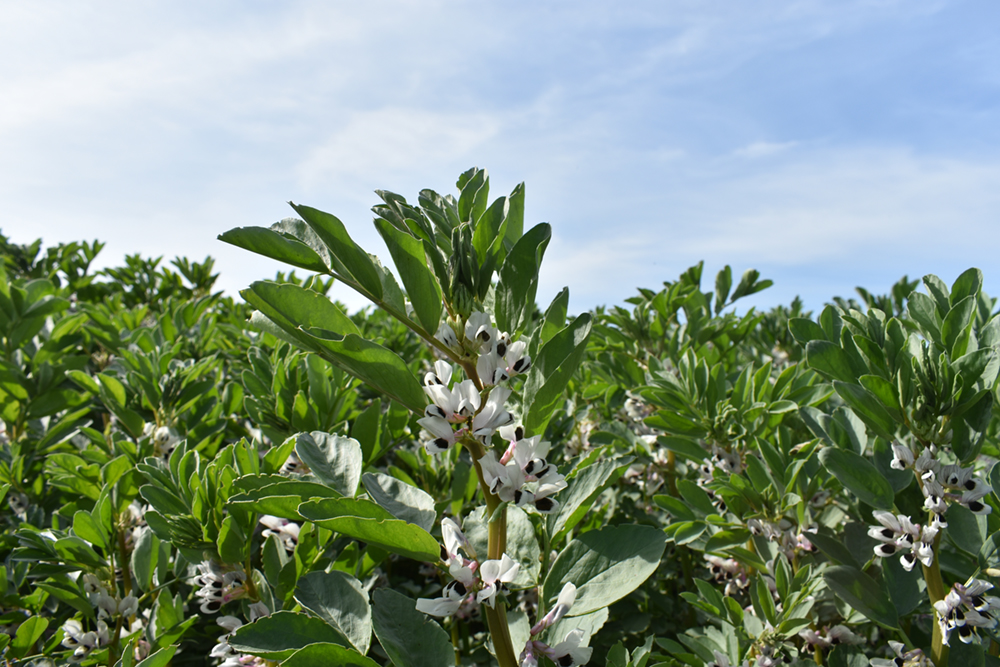
.jpg)
PoLoPo finalizes design plans for pilot-scale protein extraction plant
Molecular farming company, PoLoPo, has completed the design phase for its first pilot production facility to extract and dry functional proteins from its genetically engineered high-protein potatoes. The facility, which the company estimates will cost under US$1 million to equip, is intended to validate and scale PoLoPo’s proprietary metabolic engineering platform following a successful five-ton harvest.
The project marks the first time a company has grown and harvested transgenic potatoes at this scale for the purpose of functional protein extraction. PoLoPo's platform converts potato plants into production units for industrial proteins by engineering them to synthesize and store the target proteins within their tubers. Once harvested, these proteins can be extracted and processed into powder form using conventional food manufacturing infrastructure.
The planned facility includes equipment for washing and crushing the potatoes, purifying the extracted proteins, and converting them into a shelf-stable format using spray-drying. As the purification process is compatible with standard food processing equipment already in widespread use, PoLoPo expects to minimize capital investment while maintaining processing performance.
Design of the facility was completed with support from NIRAS, an international engineering consultancy based in Denmark. NIRAS has experience across a range of infrastructure and sustainability-focused sectors, including agri-food and alternative proteins, and is a signatory to the UN Global Compact, which encourages responsible business practices aligned with UN sustainability goals.
According to Tom Britton, Project Manager at NIRAS, the goal was to develop a scalable and cost-effective layout for PoLoPo’s processing line that could also be adapted for future locations. “PoLoPo’s pilot facility design strikes the right balance between cost efficiency and functionality, ensuring a scalable and capital-conscious approach,” Britton said. “Additionally, the facility’s design and process take into account industrial machinery requirements, allowing for future growth and seamless scale-up.”
While the facility is planned as a pilot-scale plant, the modular nature of its design means it could serve as a model for PoLoPo’s expansion into other regions. The company has indicated that the same basic setup could be deployed elsewhere with minimal changes, facilitating decentralized production in different markets.
CEO Maya Sapir-Mir said completing the design phase puts PoLoPo in a strong position to move swiftly into construction once the time is right. “Having the design plans for our first facility positions us to begin construction as soon as we’re able, and although this phase was completed ahead of schedule, we’re confident we will not wait long to move forward,” she said.
PoLoPo’s core technology centers on proprietary metabolic engineering techniques that enable potato plants to express proteins not native to the plant. These proteins accumulate in the tuber as the plant grows. Once the tubers are harvested at maturity, they are processed to extract the proteins, which are then dried into powder form. The resulting ingredient is designed to function similarly to egg white or dairy proteins in a variety of food formulations.

The company has positioned its platform as a scalable and efficient solution to the growing demand for animal-free proteins, and a way to manufacture functional food ingredients with reduced environmental impact. By using crops as self-contained bioreactors, the approach reduces the need for expensive fermentation infrastructure while taking advantage of existing agricultural and food processing capabilities.
PoLoPo recently announced the successful harvest of its first high-protein potato crop, producing five metric tons of tubers enriched with its target proteins. The harvest was conducted in open-field trials and served as a proof-of-concept for both agronomic viability and downstream processing compatibility.
PoLoPo has previously stated that its proteins can be incorporated into food manufacturing workflows without requiring reformulation, offering a direct replacement for traditional animal-based ingredients in many applications. The development of the pilot facility is intended to demonstrate the end-to-end feasibility of its process and provide the company with its first internally controlled supply of functional protein powder.
NIRAS’s role in the project covered facility layout, equipment selection, process flow design, and integration with PoLoPo’s protein purification method. The consultancy’s previous experience with plant-based and fermentation-derived proteins contributed to the decision-making process around designing a compact and efficient facility footprint.
While PoLoPo has not yet confirmed a construction timeline, the company’s ability to use readily available processing equipment and its forward-completed design phase are expected to shorten the time to commissioning once construction begins.
Founded in Israel, PoLoPo is among a growing number of companies exploring the use of molecular farming to produce high-value proteins. Unlike precision fermentation, which relies on microbial cell cultures in bioreactors, PoLoPo’s method leverages the natural biosynthesis capabilities of plants. The company has focused on potatoes due to their global cultivation footprint, relatively low production cost, and high yield potential.
If you have any questions or would like to get in touch with us, please email info@futureofproteinproduction.com

.png)






